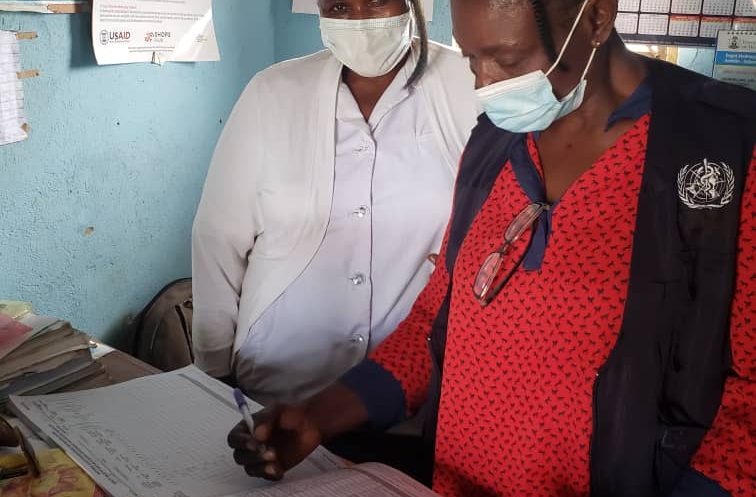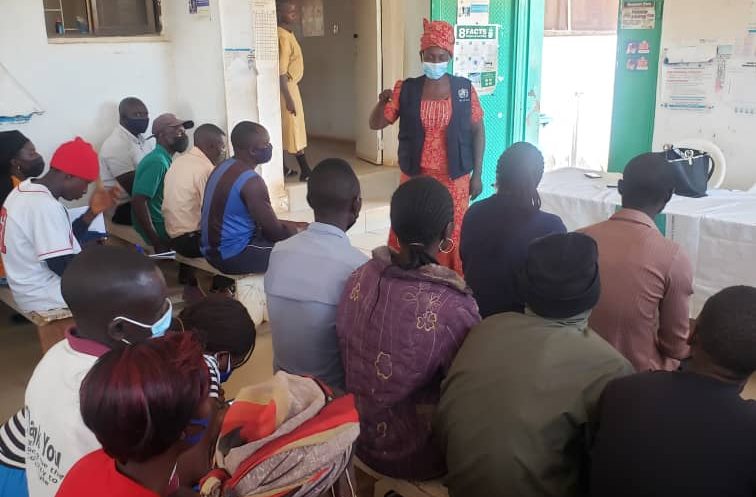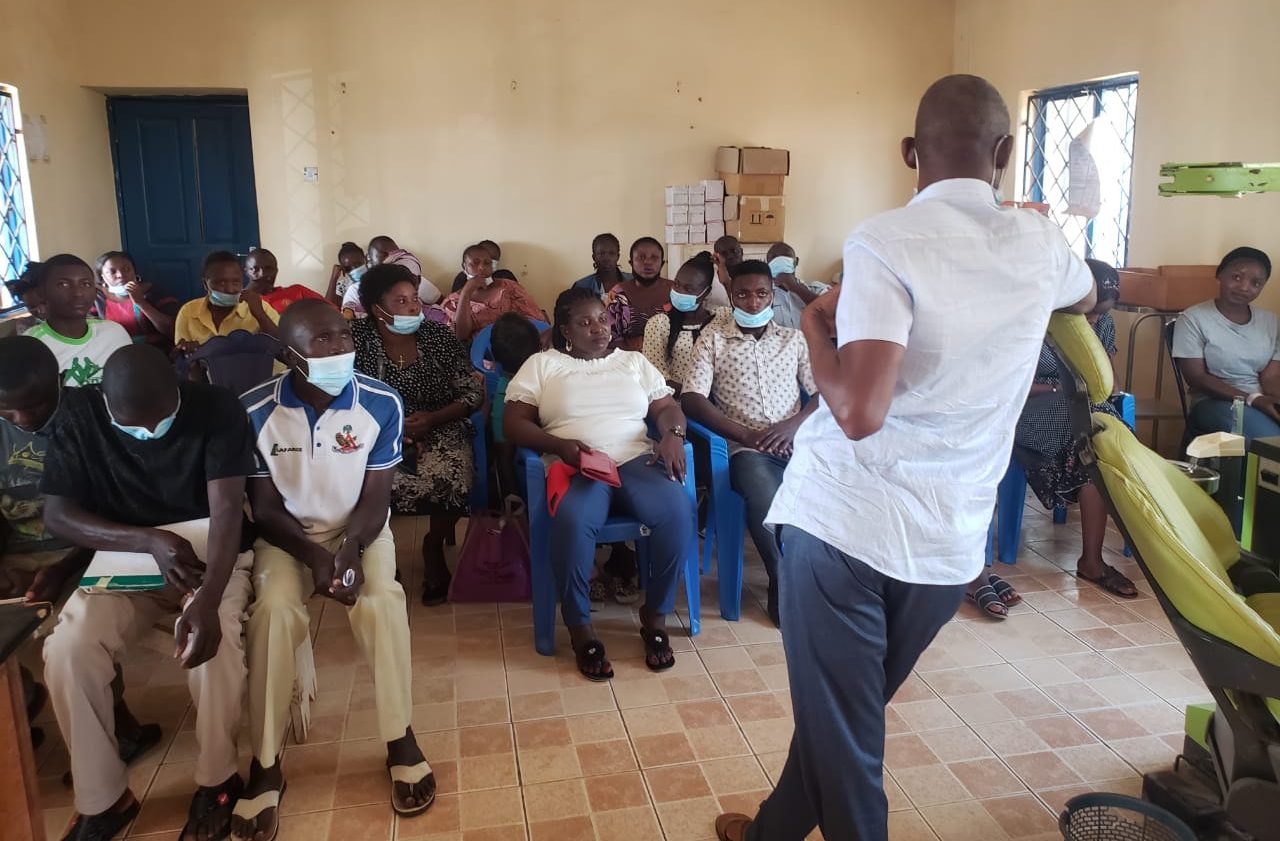Best Immunization Practices from a Medical Professional & Mother
The Boost Community highlights the stories of members committed to immunization work at the national and sub-national levels. The Boost Member Spotlight Series will regularly feature active Boost members who are engaged in relevant and innovative immunization activities in their contexts. If you have a story to share, please contact us at info@boostcommunity.org.
Lucy Pam Dangyang has been working in the immunization space for over 25 years. She was inspired to join the field after witnessing children die from vaccine-preventable diseases in her home country of Nigeria. She said, “You saw a child of maybe less than two years coming up with Tuberculosis, which is a vaccine-preventable disease. I was very touched because I was then with my baby in the university teaching hospital. Out of the other five children that came in that period, three died. So it wasn’t good. It is an experience that will make somebody, as a mother, want to try and help other children [with] a problem that can be prevented.” This experience made her reflect on her role as both a mother and a medical professional; she wondered what she could do to improve the state of immunization in her region and country.
Lucy has been especially determined to reach zero-dose children (children who have not received any life-saving vaccinations) who are at risk of dying from vaccine-preventable diseases–something she noted is not uncommon in Nigeria. Lucy, now a public health specialist with a background in public health nursing, said this reality, “gave me the passion to go for epidemiology, so that I can be able to know the intricacies of the diseases.”
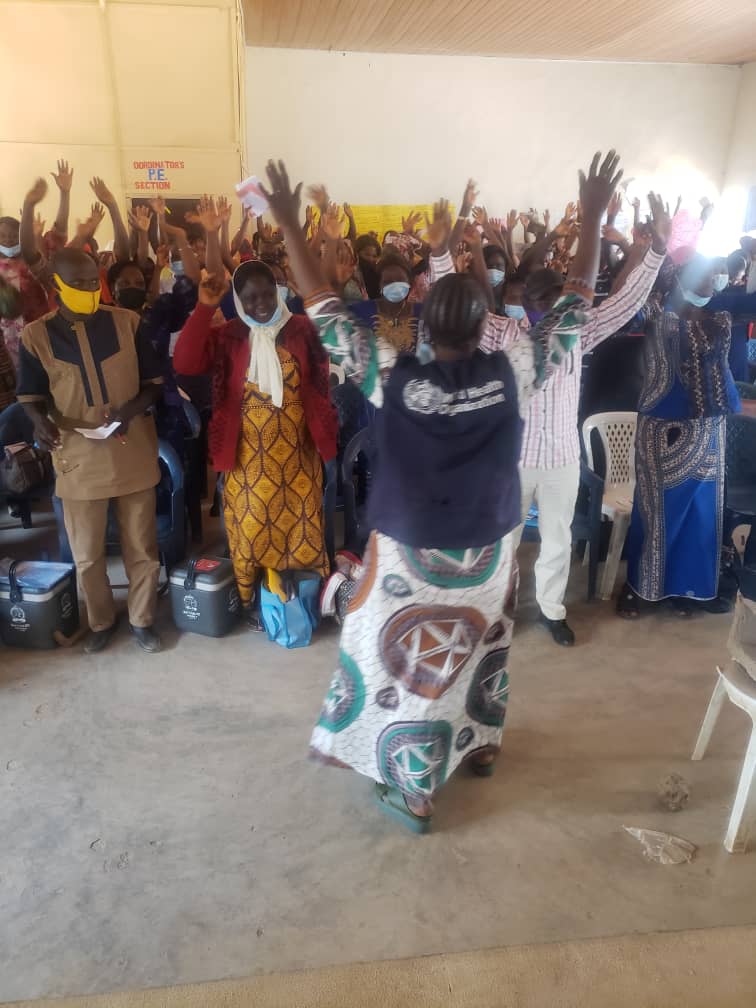
Lessons from the COVID-19 Pandemic
During the COVID-19 pandemic, Lucy worked in Riyom and Kanam local government areas in the Plateau State of Nigeria. Throughout this period, she and her team endeavored to access hard-to-reach communities to deliver COVID-19 vaccines and other vaccinations. This was no easy task, as there were multiple rumors floating around the communities surrounding COVID-19 vaccination and vaccination in general.
From this experience, Lucy learned several best practices to improve vaccine acceptance, including:
- Public education through community engagement and media campaigns
- Transparent communication from both government and health authorities
- Engagement with local leaders to help build trust in vaccinations
- Addressing the drivers of vaccine hesitancy
- Ensuring accessibility to all vaccines
- Finding vaccine role models to get publicly vaccinated
- Bringing vaccines to rural and hard-to-reach areas through mobile vaccination clinics.
Lucy notes this effort as her proudest professional accomplishment to date, as it was the first time she reached and vaccinated zero-dose children. She added, “I was so happy because that was the first time [the community members] were able to accept vaccination in that community.”
Since then, she continues to reflect on her work to try to improve immunization rates, especially in the wake of COVID-19. She notes that many children born during the height of the pandemic are not vaccinated, which led to a Diphtheria outbreak in Nigeria recently. She has also encountered increasing amounts of young children with measles. Lucy concluded, “I find out that in the community where you find poor surveillance activities, you will see a gap [in] routine immunization.” Lucy and her team have tried to resolve the lackluster routine immunization rates by integrating routine vaccination with COVID-19 vaccination services, along with other health services, such as tuberculosis testing. Despite the limited workforce in the area, Lucy has found this integration effort successful, as many people come for tuberculosis testing, including mothers with babies, and then end up being vaccinated while they are being tested.
Furthermore, Lucy said, “Any opportunity we have, we want to integrate all these activities at the same time.” For example, Lucy and her team plan routine immunization activities at churches on Sundays. After advocacy meetings with the pastors, they agree to give her team the time to do some awareness-building during the service. Then, they are able to conduct immunization activities after the service in front of the church. Lucy credits her Boost Community colleagues with giving her the idea to also go to mosques during naming ceremonies to conduct immunization activities. She said, “We use the religious leaders, who we call the stakeholders, like a role model. A role model in the sense that they will come up and volunteer to get the vaccine, like COVID-19. Then others will follow and get vaccinated.”
Harnessing the Boost Community for Professional Development
Lucy has been a Boost member since the beginning of 2023, engaging in learning groups and with other immunization professionals through the Boost online platform. She recently joined the COVID-19 Recovery for Routine Immunization Programs Fellowship, where she has already been inspired to design a catch-up vaccination plan addressing rural populations that are hard-to-reach. One community in particular lives on a mountain that is difficult to get to, especially considering the limited number of health workers in the area.
She is also preparing for the introduction of the human papillomavirus (HPV) vaccine in Nigeria, which she believes will be met with vaccine hesitancy. “When we have a new vaccine, there’s always a lot of hesitancy, a lot of rumors. [For example] when you take the vaccine it will reduce your lifespan and you die within some period of years, or maybe it causes sterility. [These are] some of the barriers we’re having and the beliefs. We have to accept their belief and then make them understand why the belief is not right, and this is the right thing to do,” Lucy said. She hopes to incorporate HPV vaccine introduction into her catch-up immunization plan for the Fellowship.
Lucy is a life-long learner, and she is happy to have joined Boost and been able to supplement her immunization knowledge. She said, “Boost has really helped me to raise awareness [about] vaccination. When you have knowledge of something, you’ll be bold to speak on it – to raise awareness in the community through their engagement, to meet the religious leaders to increase their awareness, and to be transparent through… communication with the community so that you can help them understand more about the vaccine they are taking. Because of the transparency, they’ll come out and tell you their fears of why they are having…vaccine hesitancy. And then you’ll have to use the opportunity to make them understand everything.”
She added, “I have to say thank you again to Boost because they gave me the courage to do what I’m doing in a short period of time. I will keep following the training with the Boost Fellowship so that I’ll learn more and see how I can pass it on to a peer learning at my own level here.”
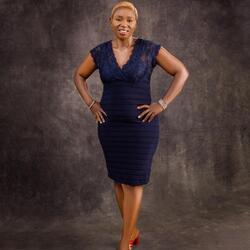
Boost Member
Lucy Pam Dangyang is a dedicated Public Health Specialist and an Ambassador of The Geneva Learning Foundation (TGLF). She holds a Bachelor of Science in Nursing with a focus on Public Nursing and a Master's degree in Epidemiology. Her passion for healthcare extends beyond academia, as she is also a Community Health Practitioner and a PHC Tutor, dedicated to improving healthcare access and knowledge in her community.

